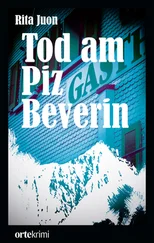Hélène placed her hand, whose joints were swollen so that she could never fully straighten her fingers, on the animal’s back. “Goat,” she said, “lazy good-for-nothing carcass of a goat, don’t lose it!”
The spermatozoa who had survived the beginning of their long journey were swimming inwards in anti-clockwise spirals.
The wind was blowing the snow in whorls and she walked holding the goat’s collar in case she slipped.
By night the icicles
grow longer
teeth of transparent rodents
by day they dribble
from food of snow
The white sheet removed
is folded in streams
my orchard
a morgue of branches
severed from the apple trees
Water furtively
unbolts the slopes
the prisoner grass is freed
pallid harrowed
too weak to make a sign
The cock’s footprint
arrow of soil
brown as the dungheap
wide as the sky
is about to cover the hen of the world
CATHERINE SEIZED EACH MAN to embrace him. Her long arms pulled him towards her tall body. First Nicolas her brother, then Jean-François the neighbour. She kissed them on both cheeks, near the mouth. At seventy-four, she was just the eldest of the three.
“It’s buried one metre deep,” said Catherine, “I can hear Mathieu telling me that. One metre deep.”
“Where does it cross the field?” shouted Nicolas.
She shrugged her shoulders. “Fifty years is a long time, but I remember him saying it was one metre deep.”
Two months ago, when she was helping her brother bring in his second hay, she had told him that the water to the bassin beside her house was no longer flowing. After that, she had refused to mention the subject again. She was going to be dependent on nobody. Yet now the expression in her eyes was excited as though she had willed the two men to come.
“The spring must be at the top,” said Jean-François and he began to climb the field, disappearing into the fog.
“Jean-François,” she cried out, “come back before I lose sight of you.”
Born into another house Catherine would surely have married, but each year of her life more men had left the valley, and she herself had inherited too little to propose to any of them that they remain.
She seized hold of Jean-François by the arm. “You shouldn’t have come to give up a whole day.”
“We dig one metre deep, at right angles to the line. Begin at the top and come down to the bottom. That way we’re bound to arrive at the pipe.”
“And the pipe will lead us to the spring! Jésus, Marie and Joseph! We’ll have it by midday.”
They began digging. Underneath the snow, the ground was still unfrozen.
When Catherine came from the house, carrying in a canvas bag glasses, a jug of hot wine and some bread and cheese, she heard the men before she could see them. At a distance of twenty metres the white fog merged into the white snow on the ground. Each time Jean-François bent his back to strike the pick into the earth, he grunted. And she heard Nicolas scraping his spade so the earth should not stick to it.
She had worked once as a waitress in a café near the Gare de Lyon in Paris. She and her brother Mathieu, the one who had laid the pipe and the one who was killed by the Germans during the Occupation, were the first members of the family ever to earn wages. And to do this they both went to Paris. He was a porter. She was a waitress. Her lasting impression of the capital was one of money continually changing hands. There, without money, you could literally do nothing. Not even drink water. With money you could do anything. He who could buy courage was brave, even if he was a coward.
The two men had dug the trench exactly one metre deep. From time to time they had measured it. It was straight and impeccably cut and cleaned out. On one side was stacked the turf; on the other, the earth. All the stones lifted out were piled in a heap together.
Nicolas scrambled out of the trench and Jean-François plunged his spade into the loose soil, as if in the hope that it would disappear into the centre of the earth. Living by himself in the corner under the mountain, he had the habit of making violent movements; in his solitude such violence was a kind of company. Catherine poured out the hot wine. The men kept the glasses up to their faces between sips, their noses in the steam which smelt of cloves and cinnamon.
“In God’s name it must be here,” Nicolas grumbled.
“I tell you if it’s not in this field, there’s no fire in hell.”
During the second half of the day Nicolas continued the long trench already begun. Jean-François dug another higher up. And Catherine started digging a third near the pair of apple trees. When she had cut the turf, she kicked the snow off before lifting the pieces up. She disliked having cold hands or feet. At night she took three hot bricks to bed with her, one for each foot and one for the small of her back. As she swung the pick the breath came out of her with a whistle, quite unlike Jean-François’ grunt.
After working in the restaurant by the Gare de Lyon she became a maid in a doctor’s house. The doctor worked at the hospital of St Antonine and lived a few streets away in the rue Charles V. Her principal jobs were cleaning grates, washing floors and laundering. The first time she laundered, she had asked the cook where the wood ash was kept. “Wood ash!” repeated the cook, incredulous. “To clean the sheets,” explained Catherine. The cook told her to go back to her goat shit. It was the first time Catherine heard the word peasant used as an insult.
They dug until the fog absorbed the dusk.
Jean-François looked down at his trench which was now a good fifteen metres long.
“Not quite wide enough for a coffin.”
“We are all of us thin,” said Catherine.
“Three graves, one for each of us.”
“A grave for each of us!” roared Nicolas.
When she returned from Paris, Catherine had found her sister-in-law dying of puerperal fever. During the next fifteen years she brought up her two nieces like daughters.
Jean-François abruptly picked up a stone and threw it up the field into the dark.
Catherine began hustling the two men towards the house. Outside the kitchen door she placed a bowl of heated water for them to wash in. She took hold of Jean-François’ wrists and placed his hands in the water. Then she draped a towel round his neck.
The last time the three of them had sat round the table in the kitchen was when she believed she might die. The doctor said it was pleurisy. She refused to go to hospital. If she was going to die, she wanted death to pass by the things she knew. Her two rooms were bare, there was neither armchair nor carpets nor curtains. But there were certain objects which were intimate to her: her yellow coffee-pot, the stove which she kept as shiny as a groomed black horse, her high bed, the picture of the Madonna above it, her work-basket. Death must run the gauntlet of these. Each night she laid out her linen and stockings before climbing into the bed, so that Nicolas should know exactly how to dress her for the coffin.
One night when he came to the house, Nicolas noticed the linen laid out.
“What’s that for?”
“To dress me in the morning if I shut my umbrella in the night.” She spoke in a hoarse whisper.
At that moment there was a scuffling noise against the door and a voice had intoned, like a lament:
“Four wild boar! I’ve seen them with my own eyes, charging down the hill!”
Jean-François had stumbled in, clutching a rifle. Drunk, he came up to the bed.
“Catherine, what will we do without you? They tell me you are very sick.”
Читать дальше












